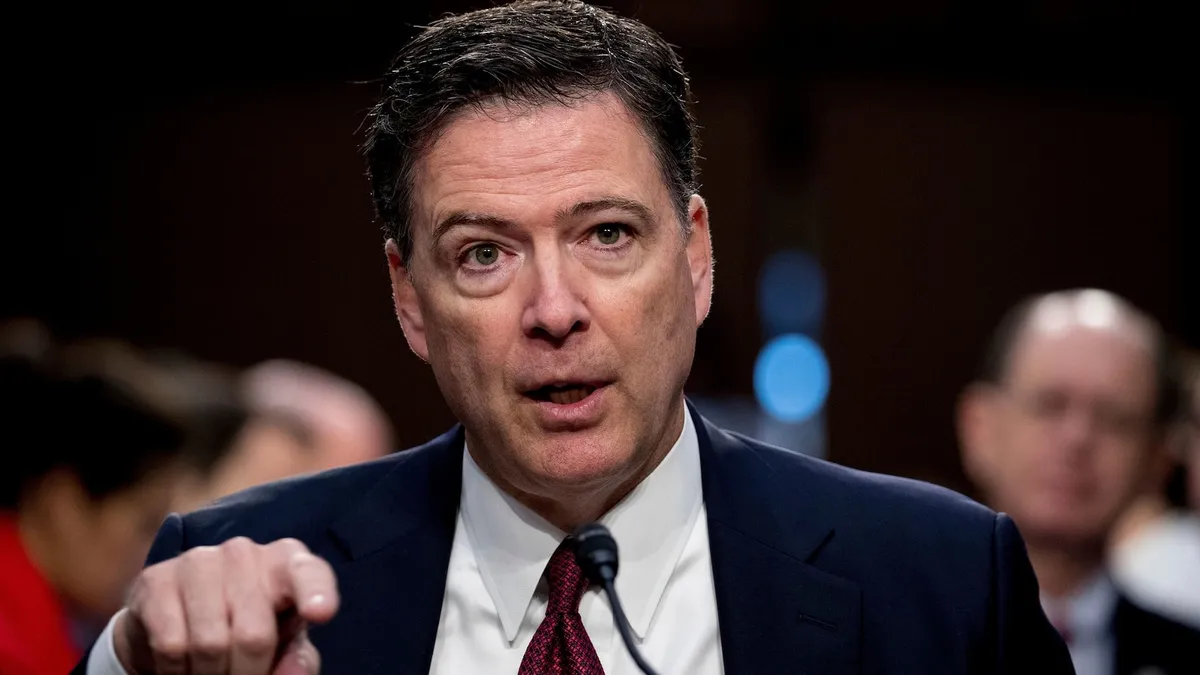
On Friday, the legal representatives for former FBI Director James Comey filed a motion to dismiss the criminal case against him, citing fundamental errors in the grand jury process that render the indictment legally flawed. This significant legal maneuver occurs just days after Interim U.S. Attorney Lindsey Halligan informed a judge that the grand jury, which heard evidence against Comey, did not review the final two-count indictment. Instead, it was revealed that they only examined an earlier version that included a charge they had previously rejected.
Comey's lawyers assert that these errors reflect the reckless and poorly conceived nature of the prosecution. They contend that the case against Comey was motivated by a president keen to prosecute him before the statute of limitations expired. To facilitate this, Halligan, a White House aide appointed as interim U.S. Attorney, reportedly rushed to secure an indictment while blatantly disregarding essential grand jury procedures. According to Comey's defense team, these grand jury errors merit dismissal of the case on multiple grounds.
In a legal filing on Thursday, federal prosecutors shifted their stance, claiming that the two-count indictment had indeed been reviewed by the grand jury. However, Comey's attorneys argue that this assertion contradicts several prior statements and is based on a misinterpretation of an ambiguous exchange between the grand jury foreperson and the magistrate judge. Prosecutors included selective portions of the grand jury transcript in their Thursday filing, presumably to substantiate their claim. Nevertheless, defense lawyers highlighted earlier concerns regarding apparent gaps in the transcript, raising questions about the validity of the prosecution's argument.
Even if the grand jury had been presented with the operative indictment, Comey's lawyers argue that this would only introduce a host of additional complications for the government. Notably, there is an apparent lack of any recording to confirm that the indictment was indeed presented, a point emphasized by Comey's defense in their filing. Additionally, they noted multiple errors made by Halligan before the grand jury, including misstating the law, utilizing evidence derived from questionable search warrants, and introducing information protected by attorney-client privilege.
In October, James Comey pleaded not guilty to one count of false statements and one count of obstruction of a congressional proceeding related to his testimony before the Senate Judiciary Committee in 2020. This case is set against a backdrop of what critics describe as Trump's campaign of retribution against individuals perceived as political adversaries. Vice President JD Vance has publicly stated that any prosecutions should be based on law rather than political motivations. Halligan, who was appointed by Trump as U.S. Attorney for the Eastern District of Virginia, sought the indictment against Comey despite opposition from career prosecutors, particularly after Trump dismissed former U.S. Attorney Erik Siebert, who allegedly resisted bringing charges against Comey and New York Attorney General Letitia James.